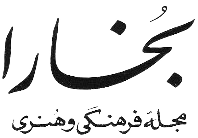هلند در عصر اسپینوزا/کیس کول (سفیر هلند در تهران)

متن سخنرانی در شب اسپینوزا
یکشنبه اول خرداد 13
حضارمحترم، خانمها و آقایان سلام. به منزل من خوش آمدید. بسیار خوشحالم که امروز چند چهره آشنا و بسیاری چهرههای جدید را در جمع میبینم. خدمت جناب آقای دکتر فولادوند – که امشب ما را از سخنان خود بهره مند میسازند – و همچنین آقای دهباشی، خیر مقدم عرض میکنم. سپاسگزارم که سفارت هلند را نیز در زمره سفارتهایی که شب بخارا برگزار میکنند قرار دادید.
مفتخرم که امشب میتوانم یکی از برجسته ترین فلاسفه هلند، مهمانمان آقای دکتر میخیل لیزنبرخ، را به شما اندیشمندان حاضر معرفی نمایم. دکتر لیزنبرخ شیفته ایران است و همانند ما مدتها انتظار کشیده تا مشتاقانه ایده هایش در خصوص اسپینوزا را با شما مطرح کند. سعی میکنم سخنانم را تا حد امکان کوتاه بیان کنم تا وقت سخنرانان ارزشمندمان را نگیرم وهمچنین شما حضار محترم نیز بتوانید فعالانه در جلسه پرسش و پاسخ شرکت نمایید.
عکسهای اسپینوزا، مانند پوستر برنامه امشب – که همکاران مجله بخارا در موسسه دید گرافیک به زیبایی آن را طراحی کردهاند– ما را با خود به عصر طلایی هلند میبرد. این عصر، یعنی قرن هفدهم، زمانی بود که هلند به عنوان یک کشور تجاری شکوفا شد. به همین دلیل اولین سفیر هلند؛ در اوایل سده 1600 در ایران استقرار یافت. در آن هنگام هلند ملغمه ای جوشان از مردمی با ملیتها، زبانها و مذاهب مختلف بود؛ که امروز نیز کمابیش چنین است. جامعه ای که نه تنها در همزیستی موفق شد، بلکه توانست به شکوفایی برسد. یکی از دلایل عمده ظهور عصر طلایی در این سرزمین کم ارتفاع، بهرهمندی از آزادی نسبی و تساهلی بود که مردم هلند نسبت به ساکنان دیگر کشورها، از آن بیشتر برخوردار بودند.
در آن زمان بود که اسپینوزا بر اهمیت ابراز عقیده وحق آزادی اندیشه و بیان تاکید مینمود. چنین مفاهیمی، 400 سال قبل؛ حقوق حقه همگان به شمار نمی رفت کما اینکه امروز نیز در بسیاری از کشورها در سراسر جهان آزادی محدود است. هلند از دیرباز مدافع سرسخت حقوق و بلاخص آزادی بیان بوده، به همین جهت مایلم تاکید کنم که امروز فرصتی برای همه شماست تا آزادانه افکار و عقاید خود را مطرح کنید. خود من، شخصاً بی صبرانه در انتظارم بدانم گفتگوی امروز به کجا میانجامد.
قول داده بودم صحبت را کوتاه کنم، پس با تشکر از هواپیمایی ایرفرانس/ کی ال ام برای حمایتشان از این برنامه و دکتر مسعود صادقی جهت ترجمه سخنرانی دکتر فولادوند سخنانم را به پایان میبرم و برای همه شما بعدازظهر الهام بخشی را آرزو مینمایم.
Dear ladies and gentlemen. Let me start first of all with welcoming you to the Netherlands residence. I am happy to see some familiar faces and many new. A warm welcome to the esteemed Dr. Fooladvand – we are very grateful for your parttaking in this seminar –, to Dr. Mohsen Sadeghi for the translation during parts of this event and of course to Mr. Dehbeshi. Thank you for accepting the Netherlands embassy into the line of embassies priviliged enough to host a Bukhara night. I am honoured that I can present such great minds as present here today one of the Netherlands most renowned philosophers, our guest Dr. Michiel Leezenberg. I know that Dr. Leezenberg is especially fond of Iran and – like us – has been looking forward to sharing his ideas on Spinoza with you for a long time. I therefore will try to be as brief as possible in order not to take time away from our respected speakers today. And – equally important – of the time you as an audience will have to actively participate in the discussion this afternoon.
Images of Spinoza like the one on the poster for this event – so beautifully designed by Bukhara´s colleagues in `Did Grafic` company – take us back to the Netherlands of the Golden Ages. It was this period, the 17th century, that saw the rise of the Netherlands as a trade nation. Not coincidentally my predecessor, the first Netherlands representative to Iran, established himself in Iran in the early 1600’s. The Netherlands at that time was a melting pot of people from many nations, languages and religions, perhaps much like it is nowadays. A society that not only succeeded in living together, but also managed to flourish. One of the reasons for this Golden Age in the Low Lands was the relative freedom and tolerance people living in the Netherlands enjoyed compared to people living in other countries.
Spinoza during that time emphasized the importance of being able to speak one’s mind, to have the right to freedom of thought and speech. 400 years ago this was a freedom far from granted to all and also nowadays it is a liberty under pressure in many countries all around the world. The Netherlands has always been a staunch supporter of human rights and of the freedom of expression in particular. I would therefore like to emphasize that this afternoon provides an opportunity for all of you to freely share your ideas and opinions. I, for one, cannot wait to see where this dialogue will lead us today.
As promised, my introduction would be brief. I would therefore like to conclude with thanking AirFrance/KLM for supporting this event and wish you all an inspiring afternoon.

